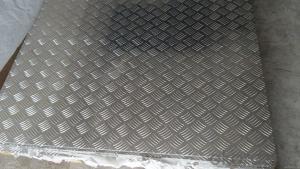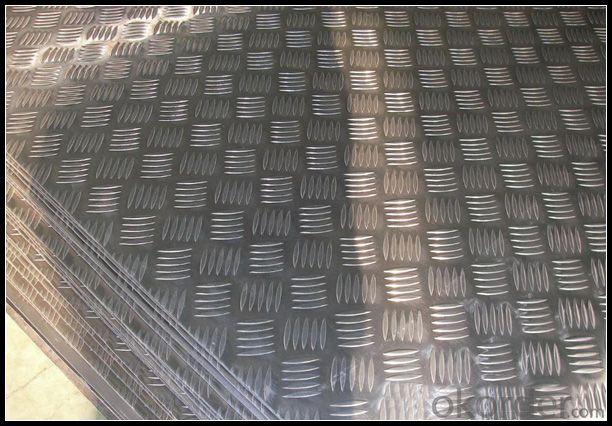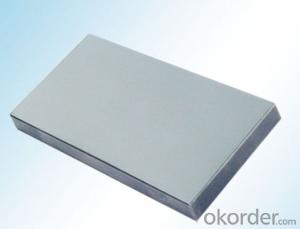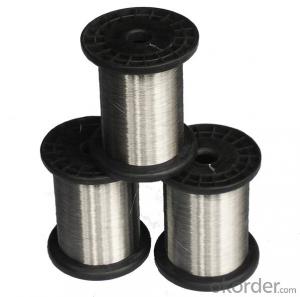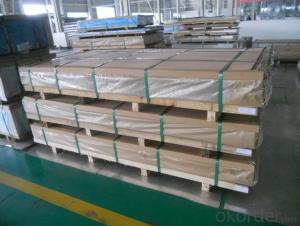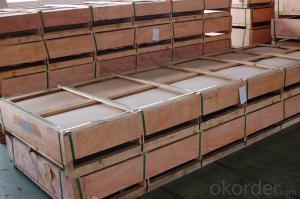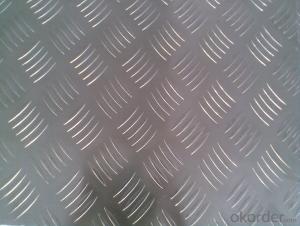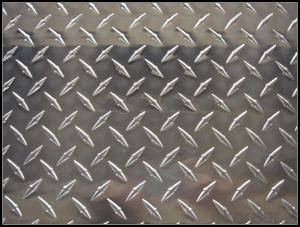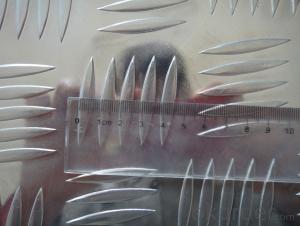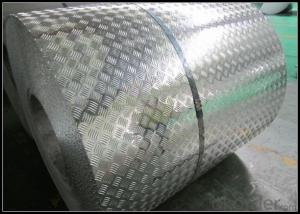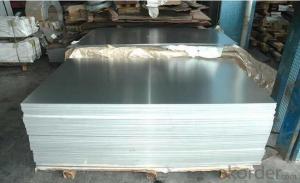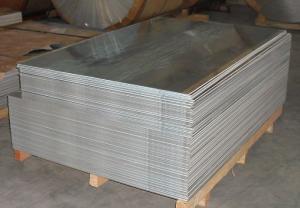Aluminum Sheets for Semi Trailer Wall - 5 Bars Embossed Aluminum Sheet 5052 Alloy for Transportation
- Loading Port:
- Shanghai
- Payment Terms:
- TT OR LC
- Min Order Qty:
- 5 m.t.
- Supply Capability:
- 10000 m.t./month
OKorder Service Pledge
OKorder Financial Service
You Might Also Like
Specification
1. Specification of Five Bars Embossed Aluminum Sheet 5052 Alloy for Transportation
ALLOY | AA1050 AA1060 AA1070 AA1100 ETC AA3003 AA3004 AA3005 AA3104 AA3105 ETC AA5005 AA5052 AA5083 AA5754 ETC |
TEMPER | H14,H18,H24,H26,H32 |
THICKNESS | 0.2MM-20MM |
WIDTH | 10mm-1500mm |
COIL WGT | 2Mt - 3Mt |
Coil ID | 20" |
SURFACE | Diamond, Stucco ,Bars etc |
STANDARD | GB/T 3880-2006 |
2. Application of Five Bars Embossed Aluminum Sheet 5052 Alloy for Transportation
(1).Interior: wall cladding, ceilings, bathrooms, kitchens and balconies, shutters, doors...
(2).Exterior: wall cladding, facades, roofing, canopies, tunnels,column covers , renovations...
(3).Advertisement: display platforms, signboards, fascia, shop fronts...
3. Feature of Five Bars Embossed Aluminum Sheet 5052 Alloy for Transportation
Surfact Quality :
Be free from Oil Stain, Dent, Inclusion, Scratches, Stain, Oxide Dicoloration, Breaks, Corrosion, Roll Marks, Dirt Streaks and other defect which will interfere with use,
Mechenical Property:
Chemical Composite and Mechanical Property
4. Certificate:
SGS and ROHS(if client request, paid by client), MTC(plant provided), Certificate of Origin(FORM A, FORM E, CO), Bureau Veritas and SGS (if client request, paid by client), CIQS certificate
5. Image of Five Bars Embossed Aluminum Sheet 5052 Alloy for Transportation
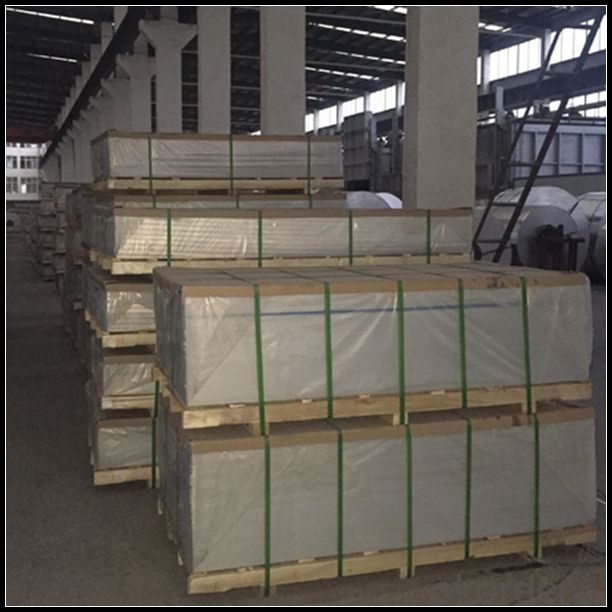
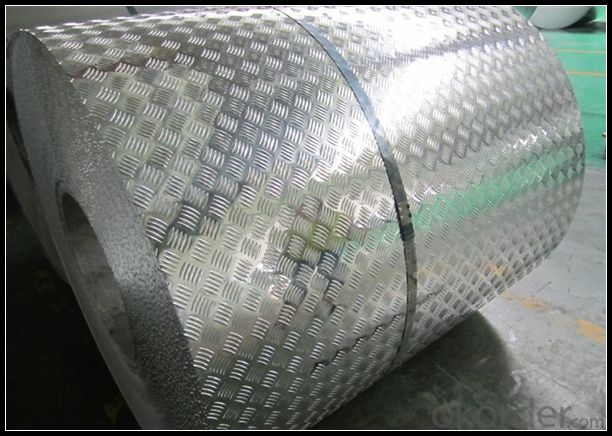
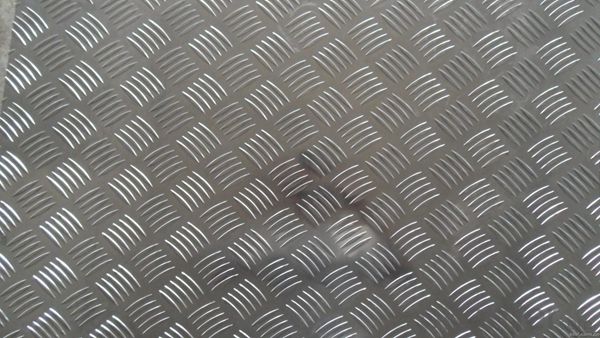
6. Package and shipping of Five Bars Embossed Aluminum Sheet 5052 Alloy for Transportation
First, plastic cloth with drying agent inside; Second, Pearl Wool ; Third, wooden cases with dry agent , fumigation wooden pallets, aluminum surface could cover blue PVC film
7. FAQ
1) What is the delivery time?
Dpends on actual order, around 20 to 35 days
2)What is the QC system:
We have QC staff of 20 persons and advanced equipment, each production is with MTC traced from Aluminum ingot lot.
3) What market do you mainly sell to?
Australia, America, Asia, Middle East, Western Europe, Africa etc
- Q: How much is the aluminum plate shearing machine?
- Aluminum plate is soft, want to blade better, or it is easy to cut askew, and the size according to type, shearing machine size, and there is configuration to set, Jiangsu Germany forging has sold as if
- Q: What is the typical cost-effectiveness of aluminum sheets compared to other materials?
- Aluminum sheets are generally considered to be cost-effective compared to other materials. This is primarily due to their abundance, lightweight nature, and recyclability, which reduces production costs. Additionally, aluminum sheets offer a high strength-to-weight ratio, corrosion resistance, and durability, making them a popular choice across various industries. However, specific cost-effectiveness may vary depending on factors such as market demand, sheet thickness, and finishing requirements.
- Q: which kind of abraser should be used for deburring of aluminum sheet?
- as for the polishing of aluminum material, we usually nylon wheel and similar products.
- Q: i am writing an essay about aluminium recycle,,,, and i would like to knowwhy it is important to recycle aluuminium can, what is so harmful about the wastes and some facts about aluminium.Thanx..... i would love if you give me the site address where i can find such infors...
- I okorder /
- Q: Are aluminum sheets suitable for food packaging?
- Yes, aluminum sheets are suitable for food packaging. Aluminum is a highly versatile and widely used material in the food industry due to its unique properties. It is lightweight, flexible, and has excellent barrier properties that protect the contents from external factors such as moisture, light, and oxygen. These properties help to maintain the freshness and quality of food products. Additionally, aluminum is resistant to corrosion and does not react with acidic or alkaline substances, ensuring that the taste and quality of the food is preserved. Furthermore, aluminum sheets can be easily shaped into different forms, making them ideal for various types of food packaging such as trays, containers, and foil wraps. Overall, aluminum sheets are a safe and effective choice for food packaging, providing durability, protection, and convenience.
- Q: Are 101 aluminum sheets suitable for interior design or architectural applications?
- Yes, 101 aluminum sheets are suitable for interior design or architectural applications. They are commonly used due to their lightweight nature, durability, and corrosion resistance. Additionally, they can be easily formed into various shapes and sizes, making them versatile for different design purposes.
- Q: How does 1200X1200X15 6061 aluminum, CNC processing, the plane degree can reach the number of my clients to 0.2, but I used to use the MS 1000X1500X70 to the material processing, the flatness is only 1, please experienced friend to help, thank you
- The first rough machining, no precision position of the first place, finishing allowance for heat treatment of unilateral 0.15MM, and then remove the stress of 420 degrees Celsius for 4 hours, with the furnace cooling (very important), doing fine processing, can guarantee within 0.03
- Q: Does exposure to weather conditions have an impact on the durability and integrity of aluminum sheets?
- <p>Aluminum sheets are generally resistant to weathering, thanks to a protective oxide layer that forms on the surface when exposed to air. This layer prevents further oxidation and corrosion, making aluminum durable even in harsh weather conditions. However, the rate of weathering can be influenced by factors such as pollution, temperature fluctuations, and the presence of aggressive chemicals. While aluminum maintains its structural integrity well, it may experience some surface changes like patina formation over time, but these are mostly cosmetic and do not compromise the material's performance significantly.</p>
- Q: What are the different types of surface treatments available for powder-coated aluminum sheets?
- There are several different types of surface treatments available for powder-coated aluminum sheets. Some of the most common options include anodizing, chemical etching, and mechanical finishing. Anodizing is a process that involves immersing the aluminum sheets in an electrolytic solution and applying an electric current to create a protective oxide layer on the surface. This treatment can enhance the durability and corrosion resistance of the aluminum, as well as provide a decorative finish with a wide range of colors. Chemical etching is another surface treatment method that involves applying a chemical solution to the aluminum sheets to create a textured or patterned surface. This process can be used to create unique designs and improve the aesthetics of the material. Mechanical finishing techniques, such as brushing or polishing, can also be used to enhance the appearance and texture of powder-coated aluminum sheets. Brushing creates a brushed or linear pattern on the surface, while polishing creates a smooth and glossy finish. Additionally, there are specialized surface treatments available for specific applications, such as chromate conversion coating for improved adhesion of adhesives or paints, or clear coatings for added protection against UV radiation. Overall, the choice of surface treatment for powder-coated aluminum sheets depends on the desired aesthetic, functionality, and durability requirements of the application.
- Q: How does aluminum sheet perform in extreme temperatures?
- Due to its unique properties, aluminum sheet exhibits exceptional performance in extreme temperatures. One of its key advantages is its remarkable thermal conductivity, enabling it to efficiently transfer heat. This characteristic allows aluminum sheet to quickly adapt to extreme temperatures, preventing the occurrence of warping or cracking that may be experienced with other materials. Moreover, aluminum possesses a high melting point of approximately 660 degrees Celsius, rendering it highly suitable for usage in high-temperature environments. It remains structurally stable, retaining its strength and integrity even when subjected to intense heat. Additionally, aluminum exhibits a low coefficient of thermal expansion, resulting in minimal expansion and contraction in response to temperature fluctuations. This particular attribute enables aluminum sheet to maintain its shape and dimensions even when exposed to drastic temperature changes. Furthermore, aluminum showcases exceptional corrosion resistance, further augmented by the formation of a natural oxide layer on its surface. This oxide layer serves as a protective barrier against chemical reactions, safeguarding the aluminum from deterioration even in harsh environments or extreme temperatures. In conclusion, aluminum sheet demonstrates outstanding performance in extreme temperatures due to its high thermal conductivity, high melting point, low coefficient of thermal expansion, and excellent corrosion resistance. These properties establish it as a reliable choice for a multitude of applications, including the aerospace, automotive, and industrial sectors, where the ability to perform under extreme temperatures is of utmost importance.
Send your message to us
Aluminum Sheets for Semi Trailer Wall - 5 Bars Embossed Aluminum Sheet 5052 Alloy for Transportation
- Loading Port:
- Shanghai
- Payment Terms:
- TT OR LC
- Min Order Qty:
- 5 m.t.
- Supply Capability:
- 10000 m.t./month
OKorder Service Pledge
OKorder Financial Service
Similar products
Hot products
Hot Searches
Related keywords
